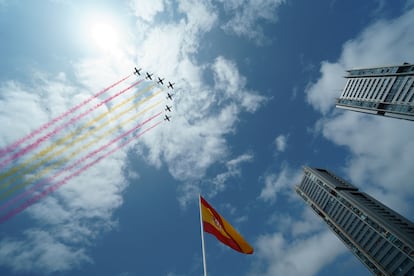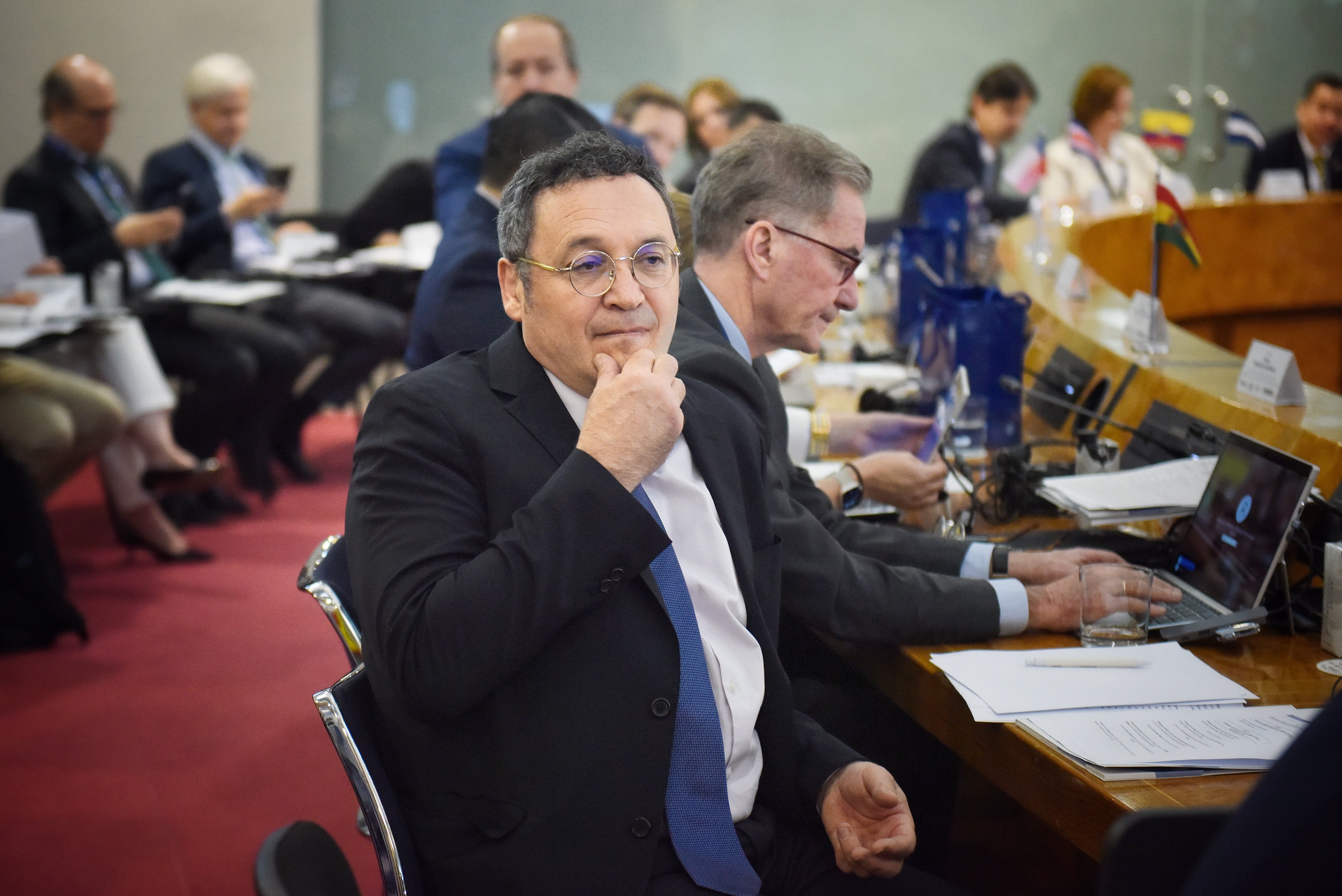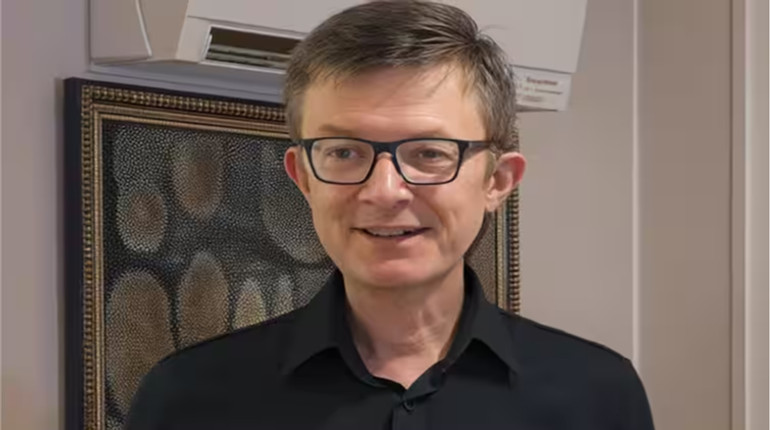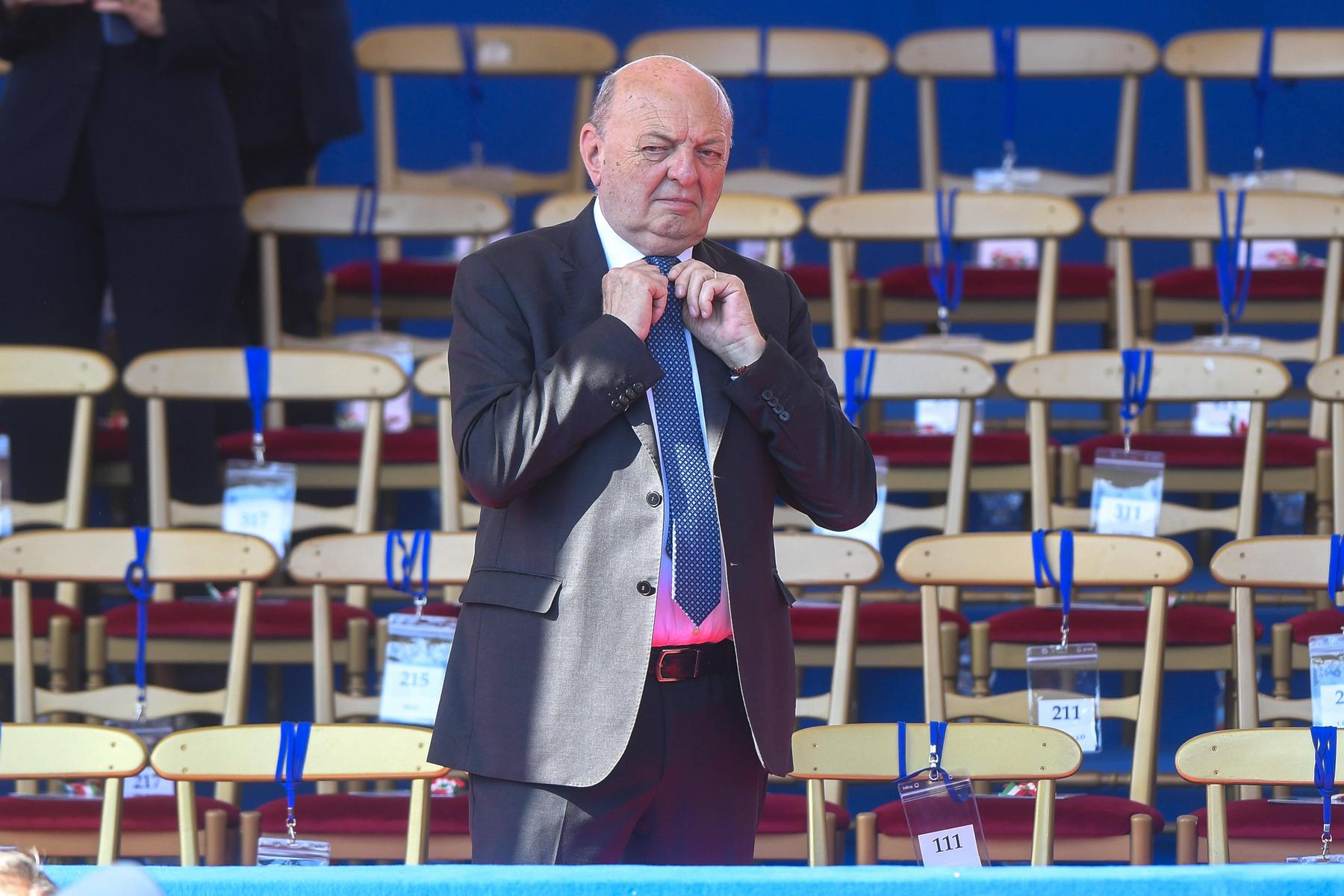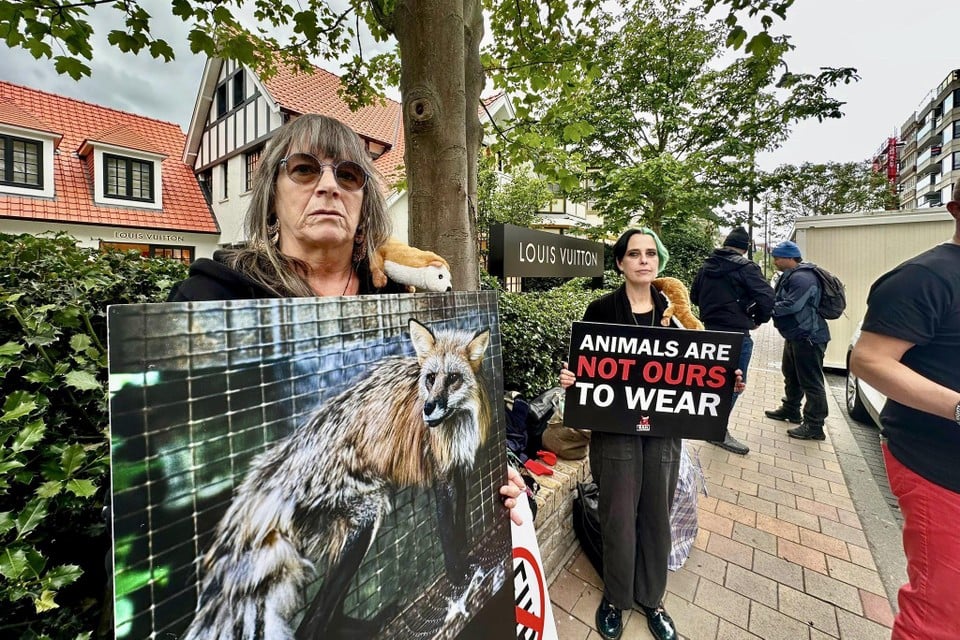Queen Letizia gives visibility to the most vulnerable women on her first day in Cabo Verde | Spain
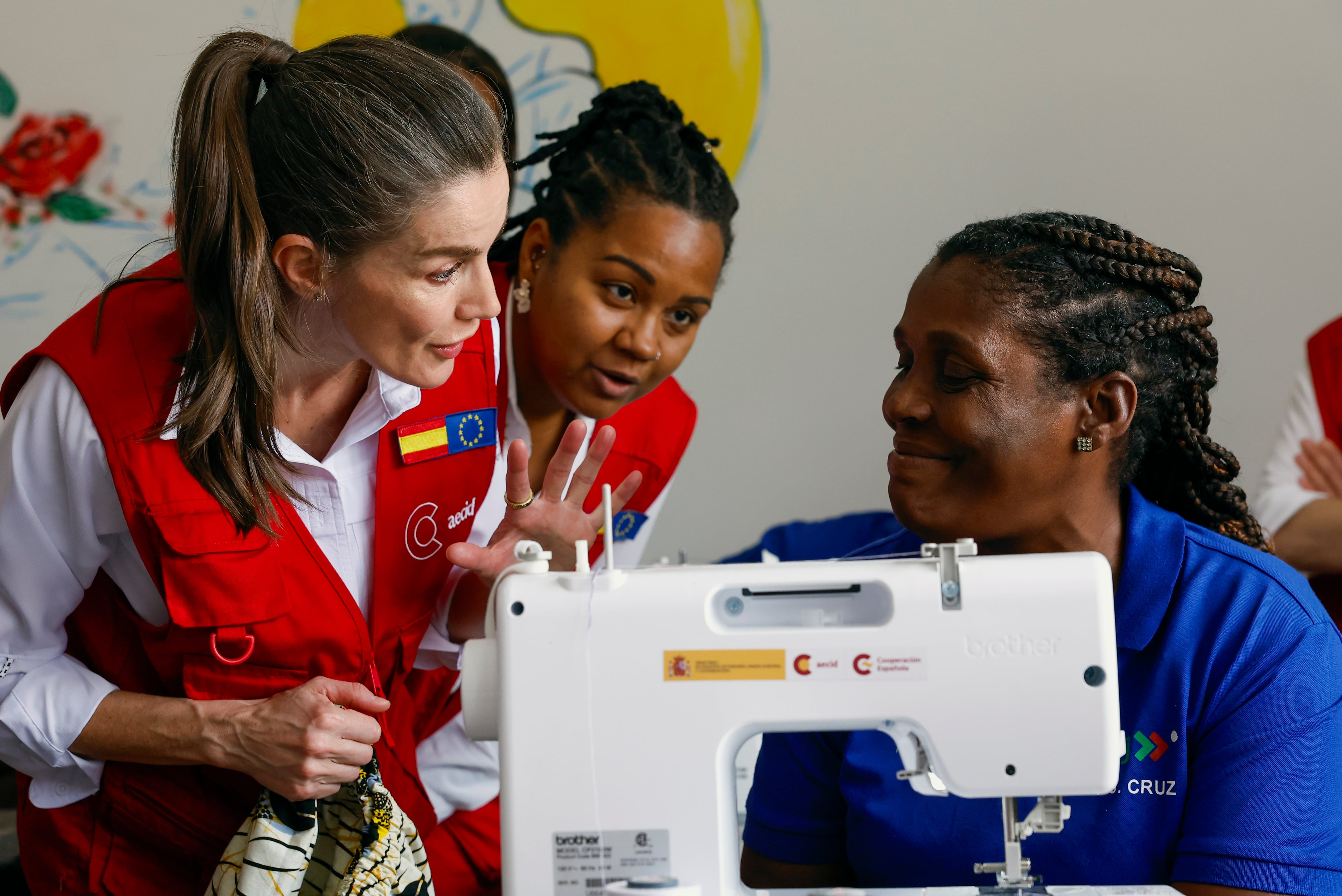
The stepfather of Fatima (fictitious name) began a relationship with her when she was only 12 years old, in parallel to which the man had with the child’s parent. A year later, the child became pregnant at the same time as her own mother, who, upon learning, threw her out of the house. Now Fatima lives with other women and her children in similar situations in a yellow house in the small municipality of Santa Cruz (25,000 inhabitants), in the center of the island of Santiago, the largest of Cape Verde. It is one of the three host houses that the Spanish Agency for International Development Cooperation (AECID), together with the support of other NGOs and local institutions, has contributed to lift in the African archipelago.
Surrounded by gray houses, with the cement seen and still under construction, and of a mountainous desert in which only acacias grows the Manuela Irgher house, one of the three that has supported to build Spanish cooperation in Cabo Verde and that will now be expanded to five throughout the country, in which some 500,000 people live. The rhythm of life, which seem here slowly, has tremble this morning With the queen’s visit and of the entire delegation of the Embassy of Spain, Press and Spanish Cooperation. « They are happy (with the visit), but they are still in the role of the victim, » explains Victoria Seoane, coordinator of the Foundation of Religious Health (FSR), the NGO that creates and facilitates the structures for women like them to have a shelter and ensure a future to their children.
Cooperation between Spain and Cape Verde dates back to 1977 and, although there are cultural and administrative exchanges – especially with the Canary Islands because of its geographical proximity – the volume of cooperation is discreet, Iliana Olivié, principal researcher at the Elcano Royal Institute. In fact, between 2015 and 2023, the investment of Spanish cooperation in this country has been 15 million euros. That is, an annual average of only 1.6 million.
Eva Granados, Secretary of State for International Cooperation, says at the gates of the Embassy of Spain in Praia, the capital Caboverdiana (130,000 inhabitants), that despite the fact that the world lives a “replication” in some cooperations (in clear reference to the almost total suspension of the USAID funds, the US Cooperation Agency, the largest in the world, by the administration of Donald Trump), Spain wants to put courage and reinforce a policy of cooperation “state”. And that’s why Doña Letizia’s visit. An help that, he insists, has the woman in the acting center, and this continually reflects the program of Felipe VI’s wife in this type of trip.
11% of women in Cabo Verde have denounced having suffered sexist violence, underlines Patricia Ramos, Coordinator of the AECID in the country, but it is estimated that, due to lack of official data – a deficit that Spain is collaborating to try to solve with the support of awareness, or the contribution to the Law of Equity and Parity (2019) and the Law of Gender Violence (2011) of almost about 50%. And it is that the problem that many cooperators find is that it is society itself, men and women, is the one that does not know how to identify what is considered violence, what can be a crime and what not. In fact, for Fatima, his stepfather « was the love of her life, » explains Seoane, who regrets that it costs a lot of time and effort to try to change the mentality. « Violence against women and machismo is transversal in the world and that is why cooperation is feminist. It is a problem of all societies, » Granados stressed. Marisa Carvalho, responsible for the Gender Equality Institute – the equivalent in Cabo Verde to the Spanish Women’s Institute – regrets that there is still a resistance to the complaint. «
Carvalho is from Portuguese mother and Caboverdiano father, a usual mixture in this African country, but of tremendously western tradition and origin for its strong links with Portugal. This Tuesday has shown him in his perfect Portuñol To the queen a cooperative of cutting and clothing where Spanish cooperation has also left its mark. It is a white and unpolluted building in which 25 women are formed as seamstresses and achieve some economic autonomy. But not just that. They also manage to get out of submerged economies, integrate into the labor market and start quoting social security. Edirna, 30, sews this morning a shirt and is one of the almost 500 women between 25 and 35 years old who have passed through these classrooms. He has been learning the technique of the five teachers who teach here two months. The instructors are all men. « For now, » adds forceful Carvalho, who appreciates that the fact that Queen Letizia, through the Ministry of Foreign Affairs, visibility to gender projects « is the recognition that a good job has been done. »
This trip, the tenth in which Queen Letizia enlishes the red vest of the AECID, aims to value the cooperation of Spain through, not only of the promotion of gender equality, but also of innovative programs for the reduction of inequality, such as the pilot project of Porto Mosquito, which the queen plans to visit last afternoon. It is a program in which it is the community itself, of about 800 inhabitants, which identifies its vulnerabilities and that in an integrated way ―alimentation, sustainable economy, water, education, awareness, violence, environment, etc. – seeks solutions to mitigate inequality among its neighbors and promote social cohesion, explains exterior.

